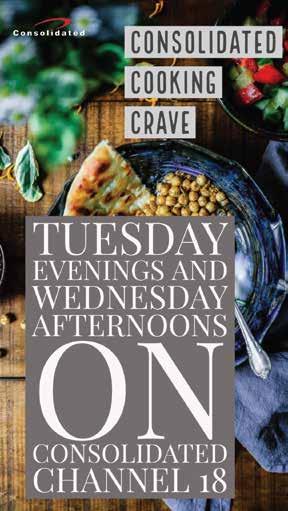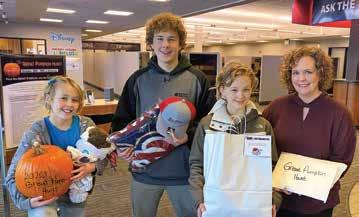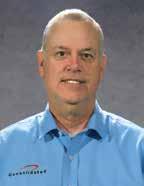2020 Toy & Food Drive


Thank you to all who donated to the 22nd annual Toy & Food Drive. This year has been unique in so many ways, and your generous donations made the holidays brighter for so many that would have gone without this holiday season. Donations were able to help families in the SW North Dakota counties we serve. We also want to extend a sincere “Thank you” to Cornerstone Bank for partnering with us on this very needed and worthwhile project by being a second drop off location.
Congratulations to the winners: Apple iPad – Sarah Corneliusen
$50 Cornerstone Gift Card –






2020 Eagle Award presented to Terry Jahner

CEO/General Manager, Paul Schuetzler, presented the prestigious Eagle Award to Terry Jahner at the Consolidated Board Meeting on November 24, 2020. “It’s a challenge to pick just one employee each year from the many who are nominated, who exemplifies all the qualifications to become an Eagle Award Winner, when our company has over 100 exceptional employees,” Schuetzler says.
Terry has been employed with Consolidated since 2012 and is a combination technician in the Dickinson area. “Terry consistently goes the extra mile, he’ll even call a customer back days after a repair call to make sure everything is still working and they are happy with the service,” says supervisor, Travis Ranum.
Terry is always looking for ways to improve and make procedures more efficient for our customers as well as his co-workers, which is in line with his caring nature. Outside of work, he volunteers his time and talents to numerous projects, and is oftentimes the first person to work on the task. This past summer, Terry took vacation so that he could help put up playground equipment at Roosevelt Elementary, so the kids would have it in time for school to start. On behalf of the management team and board of directors, we thank Terry for a job well done!

Winter 2021
A Publication of Consolidated Telcom 701-483-4000 • consolidatednd.com • Rhonda Fitterer, Editor
Photo by Carmel Meier
Terry Jahner
The 2020 Consolidated Telcom Eagle Award Winner
Peggy Birdsall and Walter Hadley
How a “flyover” state became a national leader in broadband connectivity!
These days, conventional wisdom would have you believe that anything west of the Appalachian Mountains and east of the Rockies is an Internet black hole—a vast expanse of land running on technology decades behind that of the Coasts. But if you speak to a third-generation farmer in Langdon, a newspaper publisher in New Leipzig, or a performance horse breeder in Epping, you’ll soon learn that you don’t need to travel to Silicon Valley or New York City to find the best Internet speeds in America.
According to recent data from the Federal Communications Commission (FCC), more than three quarters of rural North Dakotans have access to fiber broadband, compared to only 20 percent of rural residents nationally. In fact, rural North Dakotans are more likely to have access to gigabit speeds than even urban Americans. So, how has a “flyover” state like North Dakota emerged as a national leader in broadband connectivity? Our unparalleled rural network can be traced back to 1953, when a group of North Dakota telephone cooperatives banded together to keep North Dakota connected. Today, almost 70 years later, this organization is known as the Broadband Association of North Dakota, or BAND.
The 15 member organizations that form BAND have laid over 40,000 miles of fiber across the state, changing the lives of folks across North Dakota. But if you ask the people doing the work, they’ll tell you that they’re just doing what North Dakotans have always done: working hard, supporting one another, and pioneering new solutions to meet the needs of their neighbors. “The members of BAND have taken it very seriously to deploy fiber optic facilities throughout the state,” said Keith Larson, Chief Executive Officer of Dakota Central, a BAND member organization. “Thanks to the collective efforts of the BAND members, we’ve been able to be one of the most connected states in the U.S.”
Getting Farther, Together: It all started at Bismarck’s Patterson Hotel. In March 1953, directors from nine North Dakota telephone cooperatives gathered there with a goal to guard against unfavorable legislation, share information and resources, and ensure that high-quality telephone service remained available across North Dakota.
At the time of that fateful first meeting, a majority of rural North Dakota residents still relied on party-line service, in which wires were strung from pole to pole and long distance calls were prohibitively expensive. Today, rural areas of the state have access to some of the fastest and most affordable broadband technology anywhere in the nation. And while the technology that these companies provide has evolved over the past six decades, their mission—to ensure the highest quality communication technology is accessible to all North Dakotans—has not wavered.
In 1996, this mission led 14 BAND member companies to form the Dakota Carrier Network (DCN), a high-speed, large-capacity fiber backbone that spans the entire state. In this symbiotic relationship, BAND serves as a representative body, providing advocacy and education for its member organizations, while DCN serves as the single point-of-contact for the ND businesses and government networks— including all K-12 schools, colleges and universities—who rely on the over 40,000 miles of fiber optic cabling deployed across the state.

Collaboration between the providers that make up DCN and BAND has laid the groundwork for innovation in our state, including an unprecedented educational technology system. In July 2019, DCN successfully connected every K-12 school in the state to fiber-based one-gigabit Internet, becoming the first state in the nation to achieve this milestone. Now all North Dakota schools, regardless of size or location, have access to the same high-speed internet.
Then, in March 2020, thousands of North Dakota students suddenly needed to complete their school year remotely due to the COVID-19
pandemic. Rural broadband providers were able to connect 99.8% of North Dakota students to high- speed home Internet in just a matter of weeks—all because a group of telephone cooperatives realized, more than half a century ago, that they could get farther by working together.
Serving Our Neighbors: If this spirit of collaboration is what paved the way for a broadband revolution in North Dakota, then a commitment to the people they serve is what keeps rural broadband providers charging ahead.
The member companies that form BAND and DCN continue to bring state-of-the-art technology to their communities not because it is profitable, but because it’s the right thing to do. Because unlike large national corporations, they are serving their neighbors, not just faceless customers.
They are serving people like Sean Feil, who farms barley, wheat, and soybeans 20 miles from Langdon. Before BAND member United Communications dug fiber out to Sean’s farm, if he needed to look up equipment on the Internet, he had to drive all the way back into town. Now, a point-to-point Internet connection allows Sean to keep up-to-date on markets, weather, and equipment right from the field. But more importantly, broadband allows Sean to spend more time with his wife and their three young children. “During the busy times, I can still stay in touch with my wife and ask how things are going back home,” he said. “And every night before bed, I FaceTime my kids to say goodnight and tell them I love them.”
They are serving people like Gene Vandeberg, owner of Sandhill Performance Quarter Horses near Epping, who uses services offered by Northwest Communications Cooperative (NCC) to take care of his horses. Before he had access to broadband that allowed him to check on his horses at night, Gene was often forced to get out of bed to go check on them. “I was lucky if I’d get four or five hours of sleep a night, and checking on the horses took up to 45 minutes,” he said. “Now, I can look at the cameras to check on the horses, and I can be done in 10 minutes.” And they are serving people like Jill Friesz, the owner of a rural publishing house who is on a mission to save small-town newspapers from going extinct. When Jill took over the Grant County News 15 years ago, creating a newspaper by hand was a day-long process, not including the actual reporting, writing, and distribution. But now, thanks to high-speed Internet from her local broadband provider, WRT, Jill can create and distribute a paper in a fraction of the time. “Broadband has completely changed the newspaper industry,” Jill said. “The sky's the limit for us. We can really do anything that anybody else can do, especially now that we're connected to the world.”
For the 15 local broadband providers that make up BAND, people like Sean, Gene, and Jill are the reason North Dakota continues to provide the fastest, most reliable Internet in the nation. Stories like theirs prove that you don’t need to move to the Coasts to live a prosperous and fulfilling life; with the Internet at their fingertips, North Dakotans can continue to live in the rural communities they love while building their businesses, accessing the highest quality of education, and staying connected to the rest of the world.
Working together to serve our neighbors—it’s how North Dakota emerged as a nationwide leader in broadband connectivity almost 70 years ago, and how we will continue to lead for many decades to come.
2
BAND &
DCN
Sour Cream Muffins
1/2 cup margarine or butter
1 1/2 cup sugar
1 3/4 cup sour cream
4 eggs
2 3/4 cup flour
1 tsp baking soda
1/2 tsp salt
1/2 cup chopped nuts
1/2 tsp cinnamon
1/2 cup sugar
1/3 cup melted butter
Cream margarine or butter with sugar; add sour cream and eggs until blended. Add flour, baking soda and salt to mixture until blended (batter will be thick). Place a heaping tablespoon of batter into greased muffin tins or use cupcake papers.
In a separate bowl, combine nuts, cinnamon, sugar and mix with melted butter. Place a teaspoon of mixture on top of batter. Bake at 375 degrees for 20 min.
Sour Cream Blueberry
Muffins
2 cups biscuit baking mix
3/4 cup plus 2 tbsp. sugar, divided 2 eggs
1 cup sour cream
1 cup fresh or frozen blueberries

In a large bowl, combine the biscuit mix and 3/4 cup sugar. In a small bowl combine eggs and sour cream; stir into the dry ingredients just until combined. Fold in blueberries. (If using frozen blueberries, don’t thaw to avoid discoloring the batter.)
Fill greased muffin cups 3/4 full. Sprinkle with remaining sugar. Bake at 375 degrees for 20 - 25 minutes or until a toothpick comes out clean. Cool for 5 minutes then transfer to a wire rack.
Doughnut Muffins
Muffins:
1 1/2 cups unsalted butter at room temp.
1 3/4 cups sugar
4 large eggs
6 cups flour
1 tbsp. + 2 tsp baking powder
1/2 tsp baking soda
1 3/4 tsp salt


1 tsp ground nutmeg
1 2/3 cups milk
1/4 cup buttermilk
Dipping:

1 cup melted butter
2 cups sugar
2 tbsp. ground cinnamon
Put a rack in the middle of the oven and heat the oven to 350 degrees. Cream the butter and sugar in a large bowl; beat in the eggs one at a time, just until mixed in. Sift together flour, baking powder, baking soda, salt and nutmeg. Combine the milk and buttermilk. With a wooden spoon, mix 1/4 of drying ingredients in the butter mixture. Then mix in 1/3 of milk mixture. Continue mixing in the remaining dry and wet ingredients alternately, ending with the dry. Mix until well combined and smooth, but don’t over mix. Grease and flour a standard size muffin tin. Scoop enough batter into each tin so that the top of the batter is even with the rim of the cup, about 1/2 cup. Bake until firm to the touch, 30-35 minutes.
Combine sugar and cinnamon. Melt 1 cup butter. After muffins have cooled to the touch roll in melted butter and then in the sugar and cinnamon mixture. Let cool.
Oatmeal Muffins
1 cup rolled oats
1 1/4 cup buttermilk
1 cup flour
1 tsp cinnamon
1/2 tsp baking soda
1 tsp baking powder
1 egg
1/2 cup brown sugar
1/4 cup vegetable oil
Preheat oven to 350 degrees. In a small bowl, stir oats and buttermilk together and set aside; allow to stand for 10 minutes. Combine flour, cinnamon, baking soda and baking powder in a bowl; set aside. Stir one egg, brown sugar and vegetable oil in oats mixture; blend well, then add in flour mixture; mix until combined. Bake for 15 minutes. Yield: 15 muffins.
3
Homemade recipes made easy on TV with your chef hosts Laverne & Rhond a ! Note to All Home Cooks! Send in your favorite recipes by either method listed below and become part of the Cooking Crave TV show! Laverne & Rhonda will share your favorite recipes with their viewers! 1. visit Website at: consolidatednd.com/cookingcrave 2. Mail to: Consolidated/Rhonda Fitterer PO Box 1408 Dickinson, ND 58602
Business Phone Systems Call today 483-4000 • consolidatednd.com
Cable TV Costs Explained
Over the past decade, broadcasters have abused outdated rules to boost their bottom lines. To this day, they continue to threaten viewers with blackouts. Retransmission consent fees (“retrans fees”) are the payments that TV distributors (cable, satellite, and other TV providers) make to broadcasters to carry their TV channels. Retrans fees are a relic of a time before the Internet. Consider that:
• Retrans fees were established by the 1992 Cable Act
• The rules were written at a time when most of us had only one choice for pay TV service
• Today, we have multiple TV options, but our video rules are still based on the old model of only one pay TV provider
Making a bad situation worse is “Reverse
Retrans”:
National broadcast networks are forcing local stations to charge higher retransmission consent fees and demanding a cut of the profits. Retrans fees were intended to support local broadcast journalism, but station owners in faraway places are stripping resources from local communities to fatten their profits. If the demands for higher fees are not met, broadcasters yank their signals from consumers, leaving you without your favorite programming indefinitely. Broadcaster’s blackout their channels until their ransom demands are met. And when they are, it results in much higher prices to you the consumer. Big broadcasters are paying an army of Washington lobbyists to keep the current retrans fee system in place because they want to continue to charge higher and higher fees for their programming. Despite tremendous changes in how consumers watch TV, the rules governing the video marketplace have stayed the same.
The “Big 4” networks (ABC, CBS, NBC, and FOX) provide programming such as morning and nightly national news shows, some daytime dramas and prime time and late night shows. That programming is then shown by their owned and operated (“O&O”) stations or their affiliate stations.
Cable and satellite TV providers already pay more than a quarter billion dollars in royalty fees each year for the programming content carried by these broadcast stations. Retransmission consent fees are charged in addition to these payments, meaning that Pay TV subscribers are essentially being charged twice to watch the same content.
How does Retrans lead to Blackouts?
Who Wins?
Broadcast Networks hold all the cards and win every time. Retrans fees are soaring – the fastest rising part of the monthly Pay TV bill. The fact that there are so many choices for Pay TV (and the same old video rules) enables broadcasters to play Pay TV companies off of one another and jack up the rates. When broadcasters can unilaterally blackout their programming and harm consumers with impunity, they are guaranteed to win.
Pay TV companies want to give their customers the programming they love, but in order to do so, they have to either pay the exorbitant amounts networks demand or put their customers at risk of a blackout.
Who Loses?
The broken retrans system is a lose-lose situation for consumers. Broadcasters abuse retrans rules and blackout innocent consumers until they get what they want. Pay TV subscribers are caught in the middle, they either experience TV blackouts when a broadcaster blacks out programming, or they see higher bills when companies give in to broadcaster’s demands – retrans fees are the fastest rising part of the pay TV bill. Either way, broadcasters are giving consumers the shaft.
On January 1, 2021, Consolidated will implement the following TV price changes:
· Essential Package: No change
· Elite Package: Increasing $3 00/mo
· Premier Package: Increasing $3.50/mo
· Premium channels (HBO, Showtime, Cinemax, STARZ): No change

· Local Network Retransmission: Increasing from $17 54 to $22.04/mo Covers the cost of providing ABC, CBS, NBC, and FOX.
S nce 2009, retransmission consent fees charged to Consolidated by local Networks have changed by over 2,649 percent ! Consolidated feels that you have been paying TOO MUCH for these channels, which are available for free over the airwaves. To voice your concer ns contact North Dakota’s local Congressman Kelly Armstrong and the local affiliates to let them know these price increases are unfair.
Washington Office
1717 Longworth House Office Building Washington, DC 20515 Phone: 202-225-2611
KQCD (NBC, FOX, MeTV) Barry Schumaier Phone: 701-255-8124
Bismarck Office 220 East Rosser Ave. 328 Federal Building Bismarck, ND 58501 Phone: 701-224-0355
KXMA (CBS, CW) Tammy Blumhagen
Phone: 701-223-9197
KBMY (ABC, Xtra, Justice) Joshua Rohrer
Phone: 701-241-5338
With so many choices, why choose your local TV Provider?
It’s not complicated. We are your one-stop shop for communication services in your community. We offer a wider variety of services and extended discounted rates when you choose multiple services We are your friends and your neighbors, and sometimes even your family! As a member of your community, we care about the quality of the service we bring to you, and we appreciate you and your business.

Fees for TV Service 4
Since 2009, the retransmission fees charged to Consolidated by local Networks: 2009 – $1.00 /mo / subscriber 2016 – $7.37 / mo / subscriber 2021 – $ 2 2 . 04/ mo / subscriber 5
Battery Backup Power

NOTICE to Customers
Backup Power for Residential Voice Telephone Services during Power Outages:

For many years, your home telephone would allow you to stay connected to emergency voice services during a power outage. However, we have upgraded our facilities and now your telephone service may be provided over fiber optic, cable modem or fixed wireless rather than the traditional copper based line. These technologies require backup battery power to allow your telephone service to continue functioning during a power outage. To avoid a disruption of home voice service during an outage - and to maintain the ability to connect to 911 emergency services –Consolidated Telcom provides you with a battery for the backup power for your residential voice telephone service at the time of the initial installation at no additional cost.
What Your Battery Can - and Can't - Do for You:
The backup battery provided by Consolidated Telcom allows you to continue to use your home voice services during a power outage. Without a backup battery or alternate backup source such as a generator, your residential telephone service will not be able to make any calls, including emergency calls to 911. The only way to maintain the ability to use your telephone is by using some form of backup power. Our backup battery does not provide power to any services other than voice. Home security systems, medical monitoring devices and other equipment will not run on a residential voice telephone backup battery.
Instructions for Proper Care and Use of Your Battery:

If you do not place your battery correctly, it may shorten its useful life. Environmental factors such as temperature can shorten your battery's useful life. We recommend that you place your battery above 41°F and below 104°F. They will not last forever and should be replaced every 3 to 5 years, or when the indicator light for the battery shows that it is low or out of charge. You should also periodically
unplug your battery backup from AC power to test your battery/cable modem to verify both the operation of the backup battery and its condition. Please remember to plug the AC back in after this test.
Provided Backup Power Duration:
The backup power duration differs based on the technology that provides your telephone service to your home. See below:
✓Fiber Optic / Cable Modem - Backup batteries are expected to last at least 8 hours on standby power.

✓Fixed Wireless - Backup batteries are expected to last at least one hour on standby power. We have backup solutions available for sale that would extend this to 8 hours. If you feel that is not enough time, you may extend your standby power by purchasing additional UPS/battery from our company or a third party. If you choose to use a third-party solution, please contact us at 483-INET (4638) or 888-873-4638 to discuss any limitations the third-party solution may have.
Replacement Options:

As previously noted, a backup battery has been provided by Consolidated Telcom during the initial installation. However, the battery provided by our company may need to be replaced every three or five years or when the battery is no longer functioning. Consolidated Telcom provided replacement backup batteries – Consolidated Telcom will provide and install at no cost to you, a replacement backup battery, upon appointment, when it becomes known that the battery needs to be replaced. A 24 hour battery is available upon request. If you have any questions, please call 483-INET (4638), toll free 888-873-4638 or email support@consolidatedtelcom.com.
The Great Pumpkin Hunt ! Congratulations to the Zettel family of Dickinson! Consolidated and 27 local businesses put together a prize package worth almost $2,400 to the lucky person(s) who could find The Great Pumpkin. A week before the hunt began, Mother Nature let us know that we were indeed in North Dakota with snow, sleet and wind, but the MANY pumpkin hunters had seasonally nice weather during the week of the hunt. This year’s Great Pumpkin was found by Turtle Park in the trees to the west. We again had fun organizing this event and are already thinking of harder hiding places for next year!
Pictured L to R : Tori, Gus, Rainey, and Tara Zettel.

6
High School Students
Consolidated has invested in our youth through a scholarship program for over 32 years. The purpose of our scholarship program is to assist students from the communities we serve to further their education.
• The eligibility requirements for the Scholarship Program are: – students who will graduate in the year the scholarship is awarded – parents receive Phone, TV, and/or Internet service from Consolidated.

– This year’s essay topic is, “How has COVID-19 changed the need for reliable Internet service and how will this year academically impact students in the next decade?”
• Scholarship applications can be downloaded from consolidatednd.com/scholarships, available from your high school counselor, or can be picked up in person at our main office at 507 S. Main Ave. in Dickinson. Scholarships need be postmarked by March 3, 2021 or delivered to our main office, 507 S. Main Ave. in Dickinson.
Scholarship Program !
The Foundation for Rural Service (FRS), in cooperation with NTCA – The Rural Broadband Association, seeks to sustain and enhance the quality of life in America by advancing an understanding of rural issues. Through its various programs and initiatives, FRS strongly supports the continuing education of rural youth. The FRS Scholarship is for students who will graduate in the year the scholarship is awarded and whose parents receive Telephone, T V, and/or Internet service from Consolidated Telcom. The scholarship is awarded by the NTCA scholarship selection committee from a nationwide base of students.

To apply for the FRS Scholarship, go to consoldiatednd.com/ scholarships and click on the link to set up an account and submit application on-line.
National Award !
Schuetzler Consolidated CEO /General Manager



Paul Schuetzler was awarded
NTCA’s James L. Bass Manager Life Achievement Award in November. NTCA, The Rural Broadband Assoc., presents one manager this prestigious award to honor a lifetime of service in rural telecommunications that best exemplifies the ideals for all rural telecommunications systems.
Paul brought 17 years of experience in the telecommunications industry prior to coming to work for Consolidated in 1997. His vision, with the support of the Board of Directors and management team, converted the copper plant to a fiber optics plant that has insured our customers have the broadband needed now and into the future. Paul was also instrumental in starting the CLEC, Competitive Local Exchange Carrier, in Dickinson. The CLEC brought the “483” dial tone service to the area which bundled features like Caller ID and Voice Mail as well as bundling Internet and TV services all on one bill.
“North Dakota is lucky to have leaders like Paul Schuetzler. Even the most rural customers in Consolidated’s service territory have enjoyed major strides in fiber based broadband connectivity during his tenure. In addition, Paul was a great advocate nationally promoting policy decisions that resulted in thousands of rural Americans gaining access to broadband,” said Seth Arndorder, CEO of Dakota Carrier Network.
Paul is a leader by example and is committed to the long-term prosperity of the communities we serve.
Consolidated Board Members and employees are so very excited for Paul for achieving this award. He’s been an asset to the company, the community, and the customers we serve.
Attention
7 7
2021 Consolidated Scholarship Program! 483-4000 or 888-225-5282 Consolidated Channel 18 Order Consolidated Cable TV & get LIVE local sports! consolidatednd.com
Paul
• NEW CHANNELS added to our TV line-up!
– LAFF channel 12 features sitcoms like That 70’s Show and Home Improvement.


– COURT TV MYSTERY channel 13 features investigative crime series, docuseries and exclusive originals.



– NEWSMAX channel 106 features top headlines, videos and comments from Newsmax.com covering politics, the White House, Congress, and Hollywood.
• The 2021 telephone directories will be available by mid-January. If you need extra, the list of businesses that have them are listed on page 29 in the 2021 directory. If you did not receive your directory, please call Badlands Directory at 483-7824.

P.O. Box 1408 Dickinson, ND 58602 www.facebook.com/ConsolidatedTelcom 8 483-4000 888-225-5282 Now have extended WiFi coverage in every area of your home! Managed WiFi Router Ser vice NOTE: Receive a Managed WiFi Router FREE for 3 months! * Residential customers only Some restrictions apply consolidated n d . com/managed-wi-f i $ 49 9 per mo Starting at Extended WiFi





























